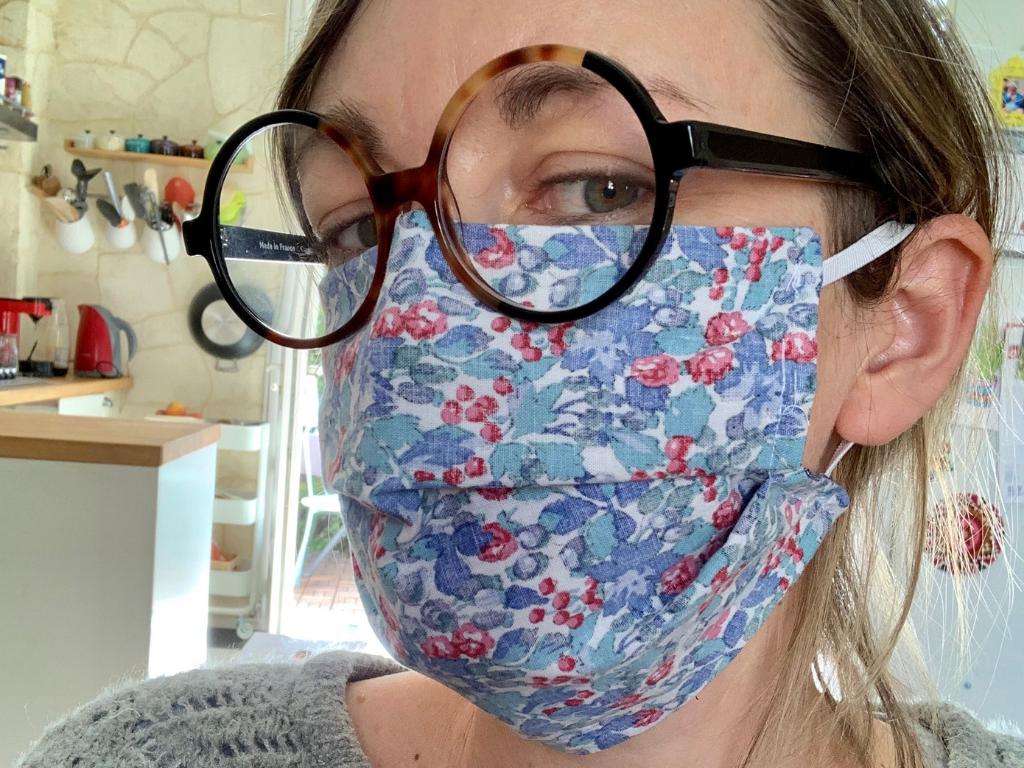In Bordeaux, they abandon fabric masks: the source of income has dried up
By Bryan Nardelli Published onNews BordeauxSee my news
On May 11, 2020, wearing a mask becomes compulsory in transport to curb the spread of Covid-19.
While surgical masks remain rare in stores, the Afnor (Association Française de NORmalisation) gives its recommendations for making your own fabric mask.
In the aftermath, many local merchants lend themselves to the game and are overwhelmed with orders.
The fabric mask is becoming rarer in 2022
But more than a year later, it is enough to observe passers-by in the street to realize that the fabric mask is no longer on the rise.
Despite the possibility of reusing them, they are considered not protective enough, too expensive or even unpleasant to wear. Gradually, they are replaced by the mass arrival of surgical masks, certainly not reusable, but much cheaper.
In Bordeaux, the hundred or so merchants who started manufacturing fabric masks in 2020 are still listed on the masque-fabrication-gironde.fr website.
Despite the income generated by the production of these masks, some of them have definitively abandoned their manufacture.
A new source of income
In March 2020, the closure of the establishments forced Morgane Thiebaud, manager of the Thimo handbag boutique, to find a new job.
Thanks to her experience in making masks, she then began to work for an association located in Bègles which collaborated with seamstresses. His daily life: making fabric protections against Covid-19 which are then sold to Bordeaux Métropole.

“For three months, I made 500 masks a week. They were paid €1.70. In other words, I was paid more than €1,500 per month, whereas in my old job, I earned the minimum wage,” adds the seamstress.
“I had to refuse orders”
Nathalie Moreau, manager of FaNa de Bordeaux, found herself in a similar situation. Every day, she makes caps for dentists. But very quickly, she felt compelled to make her own masks.
“I did it to help nursing friends who needed masks, but didn't know how to sew. Afterwards, I helped here in my neighborhood as I could,” explains the seamstress.
The sale of his masks allowed him to compensate for the cessation of his work.
“It paid me for my supplies, I made my equipment profitable, then I sold my stock. And then in this way, I was able to continue to work and keep up the pace during the two months when I was stopped, ”adds the self-entrepreneur.
new customers
“I made around 3,500 masks sold for six euros each between the first confinement and the end of the year”, explains Aurélie Delisle, manager of the Rue des clouds sewing workshop.
“My main activity is to give sewing lessons and like many, I was unable to work for two months. Selling these masks made it possible to compensate, it was my source of income, ”she adds.
Even if for some, this production has had no impact on the attendance of their business, this is not the case for Aurélie. The one whose activity is mainly based on sewing lessons has seen a new clientele arrive thanks to the pandemic.
“A lot of people started making their own masks, and suddenly my sewing lessons developed strongly after the confinements. Some started sewing by making masks and then came to take lessons to produce something else, ”explains the manager of Rue desclouds.
“Today, there is no longer enough demand”
“I helped people who needed it right away and then I stopped. Then the disposable masks arrived and people detached themselves from the fabric, ”sums up Nathalie Moreau.
Cloth mask making was intense, but brief. As orders multiplied, a new health standard came to precipitate the shutdown of production.
Read also
In January 2021, to deal with the emergence of new variants, Olivier Véran announced that "the High Council for Public Health recommends that the French no longer use the artisanal mask that we have made at home".
It was then that Aurélie Delisle and many other traders decided to put an end to their production: “Handmade masks have been banned in schools and businesses, requests have decreased and I I stopped making it. »
“After that, we were no longer needed to make masks,” concludes Morgane Thiebaud.
Was this article helpful to you? Note that you can follow Actu Bordeaux in the My Actu space. In one click, after registration, you will find all the news of your favorite cities and brands.
Share
News BordeauxSee my news
How to Get Free N95 Masks from the US Government
GO
Codeco of December 3, 2021: the new measures target schools, masks, events, but not the horeca
GO
Sunburn: how to make up for the damage? - Miss
GO
Beauty coaching: can I apply oil if I have oily skin?
GO